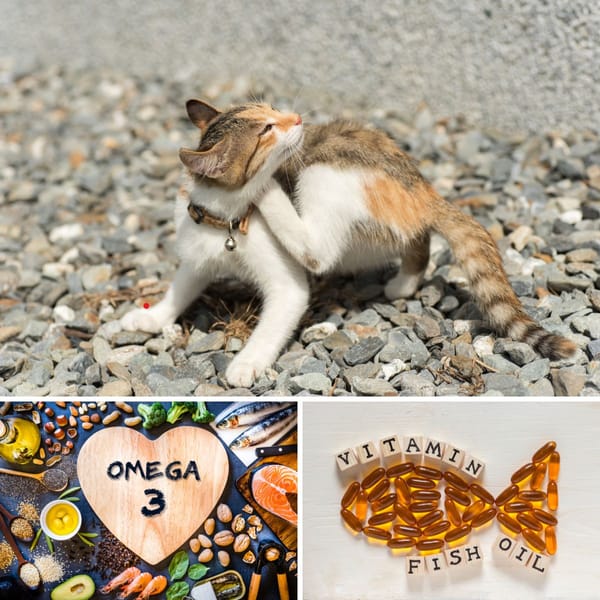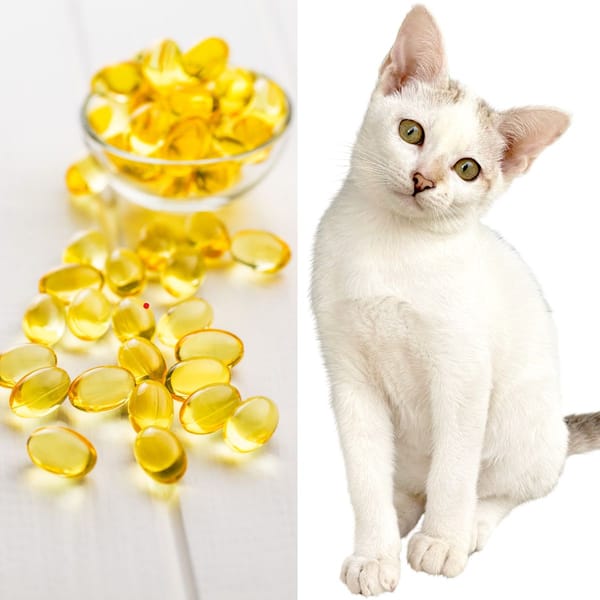Key Takeaways:
- Understanding the appropriate duration for probiotic use in horses is crucial for maintaining optimal gut health.
- Probiotic supplementation can offer numerous health benefits, but it must be tailored to individual equine needs.
- Continuous research and veterinary guidance are essential for maximizing the efficacy of probiotics in equine care.
Probiotics have become a cornerstone in promoting the health and well-being of horses, focusing on the enhancement of the equine intestinal microbiome. As horse owners increasingly turn to these beneficial bacteria to support their horses' digestive tract and overall health, one question often arises: how long can a horse be on probiotics? This article delves into the world of equine probiotics, exploring the duration of use, the benefits they confer, and the science that supports their role in equine nutrition.
Understanding Equine Gut Health and Probiotics
The gut microbiome of a horse is a complex ecosystem teeming with microbial life that plays a pivotal role in digestion, nutrient absorption, and immune function. Probiotic supplementation introduces live organisms, specifically selected bacterial strains, into the equine gut to promote a healthy balance of microflora. These beneficial microorganisms can outcompete pathogenic bacteria, aiding in maintaining a healthy gut environment.
The Role of Probiotics in Equine Digestive Tract
Probiotics for horses are designed to enhance the microbial composition of the intestinal tract, aiding in fiber digestion and helping to inactivate toxins. The presence of these good bacteria in the gut can lead to the production of short-chain fatty acids, which provide a health-promoting effect on the horse's digestive system.
Duration of Probiotic Supplementation in Horses
When considering how long a horse can be on probiotics, it's essential to recognize that each horse's needs may differ. Some may benefit from short-term use following antibiotic treatment or during acute colitis, while others might require longer or even continuous supplementation to manage chronic conditions like metabolic syndrome or chronic diarrhea.
The Impact of Probiotics on Horse's Immune System
Probiotics have been shown to play a role in supporting the horse's immune system. By maintaining a healthy balance of gut microbiota, probiotics can help the immune system function more effectively, potentially reducing the incidence of gastrointestinal diseases.
Probiotic Research in Equine Health
Ongoing probiotic research in both human and animal health continues to shed light on the benefits and applications of these supplements. Clinical trials and studies published in journals such as J Equine Vet Sci provide valuable insights into probiotic efficacy and the best practices for their use in veterinary medicine.
Choosing the Right Probiotic Strains for Horses
Not all probiotics are created equal, and the selection of the right probiotic strains is critical for achieving the desired health benefit. Commercial veterinary probiotics often contain a blend of strains that have been specifically chosen for their ability to survive the acidic environment of the stomach and colonize the equine gut effectively.
Probiotic Administration and Equine Nutrition
Incorporating probiotics into a horse's diet should be done with care, ensuring that the probiotic product is administered in adequate amounts to confer the intended benefits. The World Health Organization defines probiotics as live organisms that, when administered in adequate amounts, confer a health benefit on the host.
The Relationship Between Probiotics and Gut Motility
Gut motility is a critical aspect of a healthy digestive system, and probiotics can play a role in regulating this function. By promoting a balanced intestinal microbiota, probiotics may help to ensure that the digestive tract operates smoothly, allowing the horse to absorb nutrients effectively.
Probiotics and Neonatal Foals
Neonatal foals can be particularly susceptible to gastrointestinal issues like neonatal diarrhea. Probiotic therapy, often in the form of direct-fed microbials, can help establish a healthy gut microflora from an early age, potentially reducing the risk of such conditions. Enhancing Performance with Probiotic Supplementation Probiotic bacteria are not just about maintaining health; they can also be a game-changer in the performance of adult horses. Supplementing horses with probiotics, particularly direct-fed microbials, can lead to better nutrient absorption and energy utilization. This is because certain bacterial species in the gut are responsible for the production of short-chain fatty acids, which are a key energy source for horses. By ensuring the gut flora is well-balanced with adequate amounts of beneficial bacteria, horses can potentially have more stamina and better overall performance.
Moreover, the health-promoting effects of probiotics extend to the enhancement of muscle recovery post-exercise. Lactic acid, a byproduct of intense physical activity, can accumulate in muscles and lead to fatigue. Certain probiotic strains can help in the metabolism of lactic acid, thereby reducing its buildup and aiding in quicker recovery. This aspect of equine probiotic supplementation could make a significant difference in the competitive edge for performance horses, ensuring they remain healthy horses while striving for peak physical achievements.
Probiotics and Behavioral Health in Horses The gut-brain axis is a communication network that links the emotional and cognitive centers of the brain with peripheral intestinal functions. Recent studies suggest that probiotic supplements can influence this axis, potentially leading to improved behavioral health in horses. Probiotic bacteria may help modulate stress responses, which is particularly beneficial for horses that are prone to anxiety or stress-related behaviors. By contributing to a more balanced gut microbiome, horses probiotics can play a role in promoting a calmer and more focused demeanor.
In addition to stress management, the introduction of specific probiotic strains into a horse's diet could also impact their overall mood and behavior. For instance, the presence of certain bacterial species in the large and small intestines has been associated with the production of neurotransmitters like serotonin, which can have a calming effect. While research is ongoing, the potential for probiotics to contribute to the mental well-being of horses is an exciting development. It suggests that adequate amounts confer not only physical health benefits but also significant improvements in the quality of life for our equine companions.
Probiotic Strains and Their Specific Roles
When considering the addition of a probiotic supplement to your horse's diet, it's essential to understand that not all probiotic strains are created equal. Each strain has a unique role and health-promoting effect within the equine gut. For instance, Lactobacillus and Bifidobacterium are commonly found in supplements and are known for their beneficial impact on the large intestine. They help in nutrient absorption and maintaining a balanced gut microbiota, which is crucial for a horse's immune system.
Moreover, certain strains may exhibit significant differences in their ability to combat pathogens, enhance gut barrier function, or stimulate the immune response. It's important to select a probiotic supplement that contains a variety of strains to ensure a comprehensive approach to gut health. Researching the specific benefits of each probiotic strain can help horse owners make informed decisions that contribute to the overall well-being of their equine companions.
Probiotics and the Enhancement of Horse's Performance
The health-promoting effects of probiotics extend beyond just the immune system and digestive health; they can also play a significant role in enhancing a horse's overall performance. By contributing to a balanced gut microbiome, probiotics help ensure that horses can efficiently convert their diet into energy. This energy is crucial for performance, whether it's during a dressage test, a showjumping round, or a cross-country event. A horse with a well-supported digestive system is more likely to maintain stamina and show a marked performance improvement.
Moreover, the inclusion of probiotics in a horse's diet can lead to better nutrient absorption, which is essential for muscle development and recovery. This is particularly important for performance horses that undergo rigorous training and need to recover quickly. By aiding in the absorption of vital nutrients such as proteins, fats, and carbohydrates, probiotics help to ensure that the horse's body can rebuild and strengthen muscle tissue, leading to improved strength and endurance over time.
Probiotics as a Preventative Health Strategy
Incorporating probiotics into a horse's diet can serve as a preventative health strategy, potentially reducing the incidence of illness and the need for medical interventions. The health-promoting effect of probiotics on a horse's immune system is a key factor in this preventative approach. By bolstering the gut's barrier function and stimulating the immune response, probiotics can help horses fend off pathogens and reduce the severity of infections. This proactive measure can contribute to a reduction in veterinary costs and less downtime due to illness.
Furthermore, a consistent probiotic regimen may help mitigate the effects of stress on equine health. Horses, particularly those in competitive environments, can experience stress from travel, changes in the environment, and the demands of training and competition. Stress can negatively impact the immune system and gut health, but probiotics can help maintain equilibrium in the gut microbiota, thus supporting the horse's overall well-being and resilience against stress-induced health issues.
Incorporating Probiotics into a Horse's Diet
Integrating probiotics into a horse's diet should be done thoughtfully to maximize the health-promoting effects. Start by gradually introducing the probiotic supplement to allow the horse's digestive system to adjust. This can help prevent any digestive upset and ensure that the horse receives the full benefits of the supplement. It's also beneficial to pair probiotics with a high-fiber diet, as fiber serves as a prebiotic, feeding the beneficial bacteria and promoting their growth in the large intestine.
Furthermore, consistency is key when administering probiotics. Providing a daily dose as part of the horse's regular feeding routine can help maintain a stable and healthy gut microbiome. Keep in mind that environmental changes, stress, and illness can affect the gut flora, so adjusting the probiotic dosage during these times may be necessary. By carefully managing the introduction and ongoing inclusion of probiotics in a horse's diet, owners can support their horse's immune system and overall health.
The Use of Probiotics in Endurance Horses
Endurance horses face unique nutritional and digestive challenges due to the demands of their sport. Probiotic supplementation can help these athletes maintain a healthy gut, which is essential for sustaining energy levels and performance.
Probiotics After Antibiotic Treatment
Following antibiotic treatment, a horse's intestinal microbiota can be significantly disrupted. Probiotic administration can help to restore the balance of beneficial bacteria, mitigating the negative effects of antibiotics on the gut microbiome.
Probiotics for Horses with Gastrointestinal Diseases
Horses suffering from gastrointestinal diseases may experience relief through probiotic therapy. By enhancing the population of beneficial bacteria, probiotics can help to soothe intestinal inflammation and promote healing of the intestinal wall.
The Safety of Long-Term Probiotic Use in Horses
Concerns about the long-term safety of probiotic use in horses are valid, and ongoing research aims to address these questions. However, current evidence suggests that, when used appropriately, probiotics are safe for extended periods, with many horses experiencing significant benefits from prolonged use.
Probiotic Efficacy: Real-world Examples
Case studies and anecdotal reports from horse owners and veterinarians often highlight the positive impact of probiotics on horse health. From improved nutrient absorption to reduced incidence of loose stools, the practical benefits of probiotic supplementation are well-documented.
Commercial Probiotics vs. Natural Sources
While commercial probiotics offer a convenient and controlled way to deliver beneficial bacteria to the horse's gut, some owners prefer to use natural sources of probiotics, such as fermented feeds. The choice between these options depends on individual preferences and the specific needs of the horse.
Monitoring the Effects of Probiotics on Horse Health
To assess the impact of probiotic supplementation, horse owners and veterinarians can monitor changes in fecal samples, gut motility, and overall health. Observing these factors can help determine the optimal duration and frequency of probiotic use for each horse.
Adjusting Probiotic Dosage Over Time
As with any supplement, the needs of a horse may change over time, necessitating adjustments in probiotic dosage. Regular consultations with a veterinarian can help ensure that the horse receives the right amount of probiotics for its current condition.
The Future of Probiotic Use in Equine Care
The field of probiotic research is continually evolving, with new discoveries and advancements shaping the future of equine care. As our understanding of the equine microbiome grows, so too will the strategies for effectively utilizing probiotics to support horse health.
Summary
Probiotics have emerged as a valuable tool in maintaining equine gut health, with the potential to offer a wide range of benefits for horses. The duration of probiotic use can vary greatly depending on the individual needs of the horse, the condition being treated, and the specific probiotic strains used. While some horses may require short-term supplementation, others may benefit from long-term or even lifelong use of probiotics. It is essential to work closely with a veterinarian to tailor probiotic therapy to each horse's unique requirements and to monitor its effects over time. As research continues to advance, the role of probiotics in equine health will become even more refined, offering horse owners new ways to ensure the well-being of their equine companions.
FAQ Section
Q1: Can probiotics be harmful to horses if used for an extended period? A1: Current evidence suggests that probiotics, when used appropriately, are safe for horses even over extended periods. However, it's important to consult with a veterinarian to tailor the probiotic regimen to the horse's specific needs and to monitor for any adverse effects.
Q2: How do I know if my horse needs probiotics? A2: Signs that your horse might benefit from probiotics include digestive disturbances, such as loose stools or changes in appetite, as well as after antibiotic treatment or during times of stress. A veterinarian can help determine if probiotics are appropriate for your horse's situation.
Q3: Are there specific probiotic strains that are best for horses? A3: Yes, certain probiotic strains have been identified as particularly beneficial for horses. These include various species of Lactobacillus and Bifidobacterium, among others. Commercial equine probiotics often contain a blend of these strains to maximize benefits.







